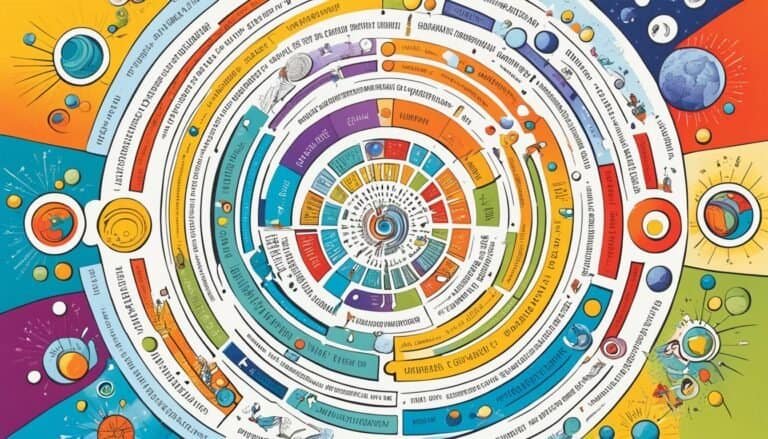5 Personality Traits That Affect Your Decision-Making
Your decision-making is influenced by five key personality traits. Extraverts are prone to taking risks and thrive in social settings, impacting their choices. Conscientious individuals pay close attention to details, leading to informed and structured decisions. Emotional stability allows for calm under pressure, resulting in rational choices. Openness to new experiences fosters innovative decisions, balancing curiosity with risk assessment. Agreeable individuals excel in collaborative decision-making, valuing harmony and cooperation. Understanding these traits gives insight into how you approach decisions.
Key Takeaways
- Extraversion leads to bold and adventurous decisions, with a focus on seeking excitement and stimulation.
- Conscientiousness involves attention to detail and strong organizational skills for thorough decision-making.
- Emotional stability enables rational choices through effective stress management and maintaining composure.
- Openness to experience fosters curiosity-driven decisions and innovative outcomes by embracing new opportunities.
- Agreeableness influences interpersonal dynamics, promoting harmony and cooperation for collaborative decision-making.
Extraversion Vs Introversion: Impact on Risk-Taking
When considering the impact of extraversion versus introversion on risk-taking behaviors, individuals with higher extraversion levels often exhibit a greater inclination towards seeking out novel experiences and taking risks. This inclination stems from the inherent nature of extraverts to be more outgoing, sociable, and energized by social interactions.
Concerning risk assessment, those high in extraversion may be more likely to engage in risky behaviors without fully considering the potential consequences. Their focus on seeking excitement and stimulation can sometimes overshadow careful evaluation of risks involved.
Additionally, in social dynamics, extraverts tend to thrive in social settings and may be influenced by peer behaviors, further impacting their risk-taking tendencies. It's important to recognize that while extraversion can lead to bold and adventurous decisions, it's essential for individuals to strike a balance between exploring new opportunities and ensuring thoughtful risk management to navigate various situations effectively.
Conscientiousness and Decision-Making
Conscientiousness plays a pivotal role in shaping how you approach decision-making processes and navigate various choices in your life. Individuals high in conscientiousness tend to exhibit a strong attention to detail and possess excellent organizational skills. These qualities influence the way you gather information, evaluate options, and ultimately make decisions.
Your attention to detail allows you to carefully consider all aspects of a situation before coming to a conclusion. This meticulous approach guarantees that you weigh the pros and cons thoroughly, leading to more informed decisions. Additionally, your organizational skills help you structure the decision-making process, breaking it down into manageable steps and creating a systematic framework for evaluation.
Emotional Stability and Choices
Emotional stability greatly influences the quality of choices you make in various aspects of your life, impacting your decision-making process with a sense of resilience and clarity. When you can effectively manage stress and regulate your emotions, you are more likely to make rational and logical decisions. This ability to stay composed during challenging situations allows you to approach choices with a clear mind, leading to more thoughtful outcomes.
To illustrate the impact of emotional stability on decision-making, consider the following table:
| Emotional Stability Benefits | Description | Examples |
|---|---|---|
| Stress Management | Ability to handle pressure calmly | Taking deep breaths before a presentation |
| Rational Choices | Making decisions based on reason | Choosing a stable job over a risky venture |
| Emotional Regulation | Controlling emotions effectively | Not lashing out when receiving criticism |
| Logical Decisions | Applying sound judgment in choices | Weighing pros and cons before buying a car |
Openness to Experience in Decision-Making
Your receptiveness to new experiences greatly shapes the way you approach decision-making processes, influencing the outcomes based on the depth of exploration and curiosity you bring to the table. When making decisions, your openness to experience can lead to curiosity-driven choices and novelty-seeking decisions. Embracing new ideas and adventures can enrich your decision-making by allowing you to ponder unconventional options and alternative perspectives.
Individuals high in openness tend to be more willing to take risks and explore uncharted territories, which can result in innovative solutions and creative outcomes. This willingness to step outside of your comfort zone can lead to a broader range of possibilities when faced with choices.
However, it's crucial to strike a balance between being open to new experiences and being cautious of the potential risks involved. While curiosity can drive you towards exciting opportunities, it's important to assess the consequences of your decisions to ensure they align with your goals and values. By leveraging your openness to experience in a mindful manner, you can make informed and fulfilling choices that resonate with your authentic self.
Agreeableness and Decision Processes
Agreeableness plays a significant role in shaping the decision-making processes of individuals, impacting how you navigate interpersonal dynamics and take into account the needs and perspectives of others. Individuals high in agreeableness tend to prioritize harmony and cooperation, which can influence their approach to conflict resolution within team dynamics. This trait often leads to a preference for compromise and a willingness to contemplate multiple viewpoints, fostering a collaborative decision-making environment.
When it comes to negotiation strategies, those high in agreeableness may lean towards accommodating the preferences of others to maintain positive social interactions. While this can be beneficial in fostering relationships, it's essential for individuals with high agreeableness to balance their inclination towards compromise with asserting their own needs and boundaries. By recognizing the impact of agreeableness on decision processes, individuals can leverage their strengths in creating win-win solutions while also ensuring their own perspectives are heard and valued.
Conclusion
As you navigate through life, remember that your personality traits play a significant role in shaping your decision-making process.
While extraversion may drive you to take risks, conscientiousness can help you make thoughtful choices.
Emotional stability can influence your ability to make rational decisions, while openness to experience can lead you down new paths.
And remember, agreeableness can impact how you collaborate with others in decision-making.
Embrace your unique traits and use them to make informed choices that align with your values.








